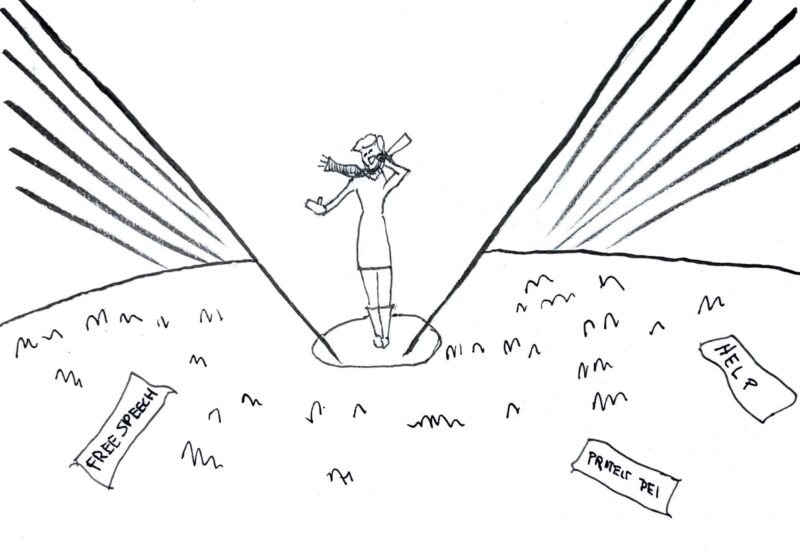Dear Fellow Students,
As we get closer to Nov. 5, it’s increasingly important to acknowledge the pivotal role we play in shaping the future. This election is monumentally consequential — not just for today, but for the long-term direction of our communities, our country, and the world we want to build together.
I know many of us feel exhausted by the constant stream of political news. As an American, the sentiment is clear: We’re tired of the nonstop campaigning and the sense that elections have become a permanent feature of our lives. It’s understandable to feel frustrated or disengaged. But, as exhausting as it may seem, the decisions we make in the voting booth have real, lasting impacts on our lives — and those choices are more important now than ever.
This election isn’t just about the big names at the top of the ballot. Harris-this, Trump-that; partisan politics on such a large scale get old quite quickly. Yes, the presidential race might dominate the headlines, but the down-ballot races and measures can have a material impact on our lives. State and local governments make decisions about how our communities function, from public safety and education to housing and environmental policy. These are the issues that shape the spaces we live in and affect the resources we rely on.
This year, many of us have the opportunity to vote on statewide ballot measures. Across 41 states, there are 159 measures this year, and these are rare chances to engage in direct democracy — where our vote has an immediate impact on whether a law is passed. Whether it’s about protecting access to abortion, raising the minimum wage, changing tax codes, or creating new state flags — these decisions are in our hands. I’d argue that these direct changes to state law give citizens one of the greatest exercises of self-governance that can be attained.
Elections are overwhelming, scary, full of misinformation, and can generally just be tough to navigate. But that’s where our education comes in. Our time here is spent learning to analyze complex issues, ask critical questions, and engage in meaningful discussions. That same spirit of curiosity and engagement is key to navigating the election. We don’t need to have all the answers, but we do need to care enough to participate.
As a student of political science, a member of UR’s Committee for Political Engagement, a researcher and TA in the political science department, a former campaign worker, and as President of the Students’ Association, I want to emphasize just how crucial your vote is this year. While some may feel that their vote ‘doesn’t matter,’ I assure you that it absolutely does — on multiple levels, no matter where you live, the power of your vote is crucial.
So, as we head into Election Day, I urge each of you to take the time to vote — and to vote up and down the ballot. Vote for the big races, and vote for the small races — every election will impact the communities we live in.
This is more than a civic duty; it’s a chance to shape the future we want to see.
Sincerely,
Elijah Bader-Gregory
President, Students’ Association



